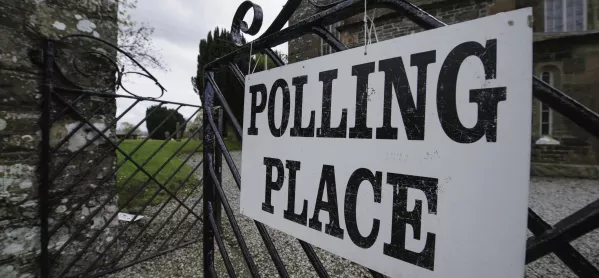- Home
- ‘Let under-18s vote - but give them politics lessons’
‘Let under-18s vote - but give them politics lessons’

A teenage girl is watching the news half-heartedly, trying to pay attention to the squabbling politicians. There is talk of universal credit and the Named Person scheme.
“How am I supposed to teach myself about this?” she wonders, as her 16th birthday looms. She struggles to recall the different political parties…what does right- and left-wing mean again?
She thinks about her friend who envisions being a politician and is a member of the Scottish Youth Parliament. His parents taught him everything he knows, and they are constantly debating topical issues.
Priorities: What do young people want from their education?
Quick read: ‘Voting at 16 will help to build informed and engaged citizens’
Politics education: Schools should teach us more about politics, young women say
Brexit: Negotiators’ failures prompt training for pupils
Another of the ‘25 calls’: Stop seeing poor children as ‘tragic’, campaign says
The girl thinks about her own parents, who have never voted in their lives and aren’t open to questioning how the country is run.
“We need to find a way to make everyone become informed, not just those from good backgrounds,” she thinks. “Surely school is the place for politics to be discussed?”
The need for quality politics teaching
There is no doubt that many 16- and 17-year-olds are more informed on political matters than our politicians. And it’s important that organisations such as Children in Scotland recognise how crucial it is for young people’s voices to be heard in Parliament - an issue they’ve raised through call 5 of their “25 Calls” campaign.
Of course, young people should be allowed to have their say in decisions affecting them, as nobody is better placed to take control of the future than these well-educated young people.
But what about those young people who don’t have an opportunity to discuss politics, the ones who think Nicola Sturgeon is prime minister and that politics is a waste of time?
In an ideal world, all children and young people would understand the basics of politics in the UK, be able to spot manipulation and be armed with knowledge to debate current affairs. However, this can’t happen without appropriate teaching.
Giving 16- and 17-year-olds the right to vote would be beneficial to those who are clued-up about politics. But it would also put unfair pressure on young people who are clueless and make less informed decisions.
As a teenager myself, I believe the voting age should be lowered to 16. But not without compulsory political education first. We can’t leave young people to vote purely based on the information dished out by the media - introducing high-quality political teaching should be a priority for secondary schools
By not educating children and teenagers, we are assuming that they have the knowledge required for voting from their families and support networks. This is dangerous.
All young people need to be given an equal standard of political education. It isn’t their fault for not knowing and not being engaged.
“Read the news!” older generations will chime, even though they can hardly understand it themselves.
By encouraging debate in the classroom, providing our young people with unbiased and simplified news sources (which would benefit everyone), politics would become everybody’s business.
In theory, it sounds simple: lower the voting age to 16 so teenagers can voice their opinions on issues that will affect them. In practice, it’s different.
If young people are not properly informed about different policies and what they mean, they may end up voting for a party that has a detrimental impact on them - while those from privileged backgrounds would be more likely to make a decision that would impact them in a positive way.
Yes, 16- and 17-year-olds should have the right to vote. But first, it’s our responsibility to educate them.
Ellie Roy goes to school in Scotland. She is a member of Changing Our World, the children and young people’s advisory group for the Children in Scotland charity. This piece originally appeared as a blog post for Children in Scotland’s 25 Calls campaign
Keep reading for just £1 per month
You've reached your limit of free articles this month. Subscribe for £1 per month for three months and get:
- Unlimited access to all Tes magazine content
- Exclusive subscriber-only stories
- Award-winning email newsletters